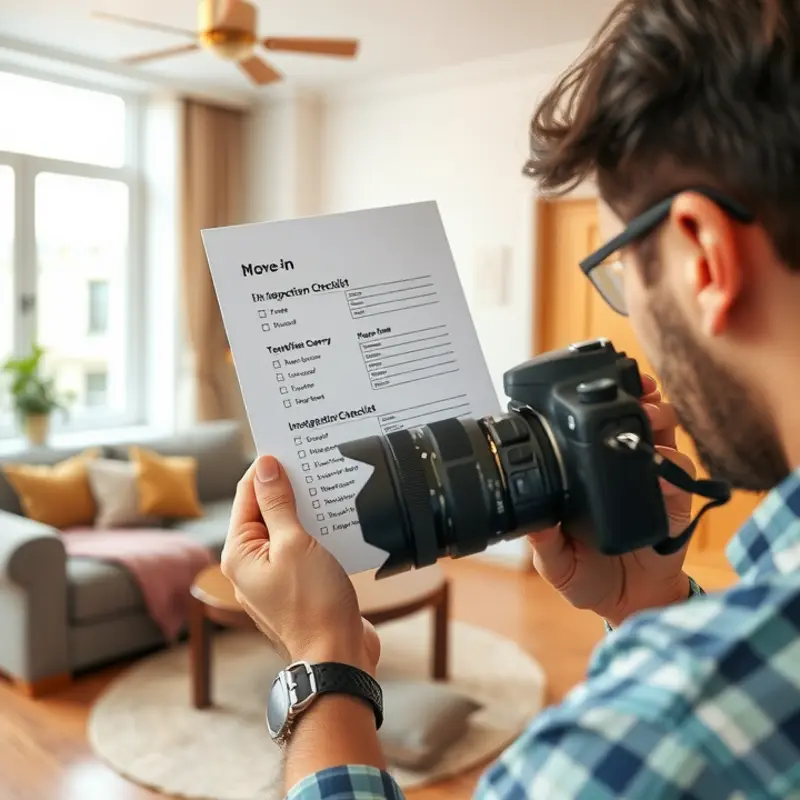Renting a home is an exciting step into autonomy, but for many young professionals, students, and families, it also comes with anxiety over financial commitments, particularly the rental deposit. This upfront fee, often equivalent to one month’s rent, serves as a security against potential damages or unpaid rent. However, navigating the responsibilities attached to that deposit can be confusing. Whether you’re a first-time renter or relocating to a new city, understanding how to adequately protect your rental deposit can save you stress and money in the long run. Knowing your rights and responsibilities, understanding lease agreements, and establishing a good relationship with your landlord are critical components of minimizing the risk of losing your deposit. Let’s explore how you can secure your financial future and ensure a smooth renting experience.
Understanding Your Lease Agreement

Navigating your lease agreement with confidence requires careful attention to detail. A lease is a legally binding document that outlines the expectations and responsibilities of both the tenant and the landlord. Understanding key terms is crucial to protect your rental deposit and prevent disputes.
Firstly, familiarize yourself with basic lease terminology. Terms like “security deposit,” “rent due date,” and “lease term” are common. The security deposit is typically one month’s rent, held by the landlord to cover any damage beyond normal wear and tear. Ensure that the lease specifies how and when this deposit will be returned.
Next, look for clauses regarding maintenance and repairs. Understand who is responsible for fixing issues like plumbing or electrical problems. Some leases require tenants to handle minor repairs, whereas major repairs often fall under the landlord’s responsibility. Properly documented maintenance responsibilities can safeguard against unjust deductions from your deposit.
It’s equally important to scrutinize the section on termination and renewal of the lease. This dictates the notice period required if you or the landlord decide to end the agreement. Check for any automatic renewal clauses that might bind you to another term without clear communication.
Before signing, confirm and clarify any ambiguous terms and conditions with your landlord. Communicate openly and document all interactions, including emails or text messages, about any verbal agreements made. This documentation can serve as a reference if disputes arise.
Finally, consider potential addendums to the lease agreement. These are additional documents that modify the original lease terms. Common addendums include pet policies or restrictions on subletting. Understanding these addendums helps prevent unexpected fees or disputes.
For further insights on navigating financial aspects of renting, you might find our guide on financial planning for renters useful. It covers essential advice to manage expenses effectively and stay within budget.
Securing a comprehensive understanding of your lease agreement protects your financial interests and fosters a positive landlord-tenant relationship. Use this knowledge to confidently sign your lease and maintain open lines of communication with your landlord.
Best Practices for Protecting Your Deposit

When renting a property, protecting your deposit starts from the moment you step inside. The key is thorough documentation. Begin with a detailed walkthrough while taking notes of any pre-existing damage or imperfections. Pay close attention to walls, flooring, appliances, and fixtures, noting even minor scuffs or scratches.
To bolster your walkthrough notes, take photographs or videos of the property. Capture each room systematically, ensuring any existing issues are clearly documented. Email these images to yourself and your landlord for a digital timestamp, creating an indisputable record of the property’s initial condition.
Keeping lines of communication open with your landlord is another crucial step. Early discussions about your expectations for property maintenance can avert misunderstandings. Whenever issues arise, such as broken appliances or maintenance needs, report them in writing. This not only ensures there is a trail of communication but also demonstrates your diligence and commitment to maintaining the property.
Moreover, resolve disputes amicably whenever possible. Approach your landlord with a cooperative mindset, especially if disagreements about property conditions occur. Emphasize finding solutions, which may involve negotiating repairs or compromising on certain issues, while remaining assertive about your rights.
Utilize a checklist for move-out procedures. Many landlords provide one detailing cleaning expectations and areas requiring extra attention, which can help you systematically address every aspect of the property. Completing these tasks demonstrates responsibility, making it difficult for your landlord to justify withholding any portion of your deposit.
Lastly, remain familiar with resources that can bolster rental negotiations or improvements in lending scenarios. For insights beyond deposits, check out tips for improving your renter’s credit. This knowledge reinforces your role as a proactive tenant concerned with sustaining a healthy rental relationship.
Protecting your rental deposit involves preparation, documentation, communication, and cooperation. By adhering to these strategies, you ensure not only the safeguarding of your deposit but also the fostering of a respectful and responsible rental experience.
Final words
Protecting your rental deposit is all about being proactive and informed. By carefully reviewing your lease agreement and implementing best practices for documenting the condition of your rental property, you can significantly reduce the risk of losing your hard-earned money. Establishing a clear line of communication with your landlord can also foster a positive relationship and facilitate smoother interactions. Remember, taking these steps not only secures your finances but also enhances your overall renting experience. Every renter deserves peace of mind, so arm yourself with knowledge and confidence as you navigate this essential responsibility.









